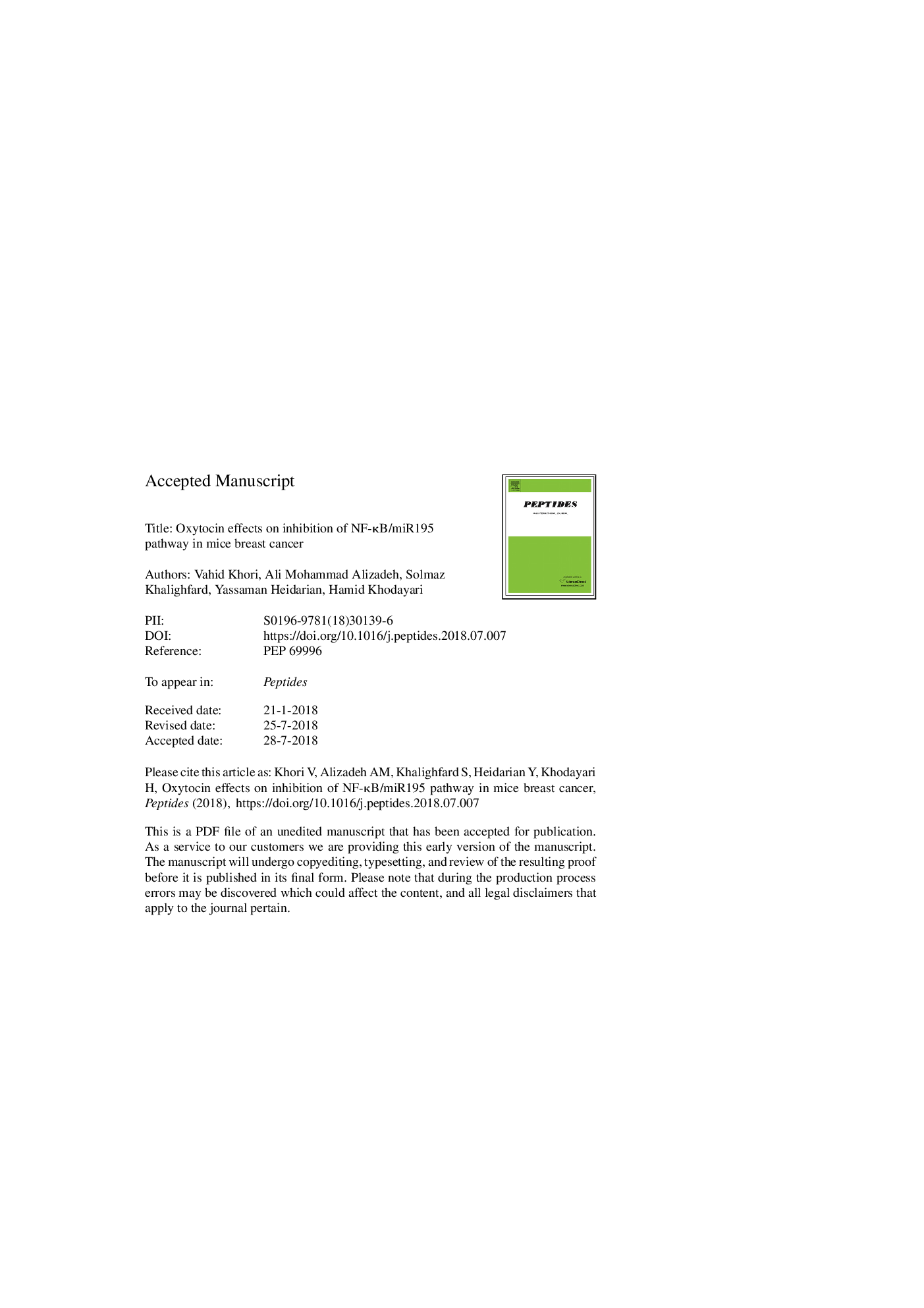| Article ID | Journal | Published Year | Pages | File Type |
|---|---|---|---|---|
| 8347190 | Peptides | 2018 | 29 Pages |
Abstract
Oxytocin (OT) has the suppressive effects on breast tumor formation and development. We hypothesized that OT through the NF-κB inhibition can induce the miR-195 up-regulation which it can promote the cell apoptosis and inhibit the cell proliferation. Thirty-two BALB/c female mice were equally divided into four groups to study the effects of OT and atosiban (ATO) (an oxytocin receptor antagonist) on the mammary tumor growth. The animal weight, OT plasma concentration, and the tumor weight and volume were measured. Moreover, the tumor-related signaling pathways including NF-κB, miR-195, and Cyclin D1 were evaluated by qPCR assays, and Akt and ERK proteins were assessed by western blot at the end of the study. The volume and weight of tumors were significantly decreased after OT administration. The phosphorylated Akt and ERK expressions were signiï¬cantly decreased in the OT group compared to the tumor group. In contrast, the dephosphorylated Akt and ERK expressions were signiï¬cantly increased in the OT group in comparison with the tumor group. The mRNA expressions of miR-195, OTR, and Bax genes were significantly increased, and the mRNA expression of ERα, PI3K, NF-κB, cyclin D1 and Bcl-2 genes were decreased in the OT group in comparison with the tumor group. Interestingly, ATO administration reversed these effects. These results can exhibit a new therapeutic potential for OT on the down-regulation of the NF-κB and up-regulation of miR-195 and consequently, decrease of the tumor volume and weight in a mouse model of breast cancer.
Keywords
Related Topics
Life Sciences
Biochemistry, Genetics and Molecular Biology
Biochemistry
Authors
Vahid Khori, Ali Mohammad Alizadeh, Solmaz Khalighfard, Yassaman Heidarian, Hamid Khodayari,
